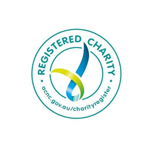Toxic Stress
What Exactly Is Toxic Stress, And Why Does It Matter?
Stress seems to be an inevitable feature of our urgent, fast-paced, and technology-saturated lives. We may be familiar with stress as a reaction that prepares us for a short, intense flight-or-fight response to a perceived threat.
In moderation, stress can serve as a motivator, enhancing our performance and resilience.
However, toxic stress, which we can understand as chronic exposure to severe stress, has detrimental effects on both our physical and mental health.
What Is Toxic Stress?
Toxic stress is a form of chronic, long-term stress. It refers to the extreme, prolonged activation of the body’s stress response system in the absence of supportive relationships or protective factors (Shonkoff et al., 2012).
Toxic stress can lead to significant health problems and developmental disruptions. Toxic stress in adults may manifest as impulsivity, decreased interest in activities, and increased anxiety. Childhood toxic stress can cause abnormal development and permanent structural changes in the brain closely linked to cognitive impairment, severe mental illness and addiction, and a range of chronic health issues.
Symptoms of toxic stress may include:
- Muscle pain
- Headaches
- Gastrointestinal upset (such as stress-induced constipation)
- Increased heart rate, blood pressure, or respiration
- Sleep disturbances or nightmares
- Changes in appetite, eating, and weight
- Trouble regulating emotions
- Increased anxiety and irritability
- Depression or mood swings
- Impulsive, risky, or destructive behavior patterns
- Increased use of substances or alcohol
- Difficulty focusing, concentrating, or remembering things
- Inability to feel present or engaged in activities
- Impaired functioning in one or more areas of life
- Social withdrawal or isolation
- Racing thoughts or negative thoughts about self and future
Signs of Toxic Stress
Recognizing the core signs and symptoms of toxic stress is crucial for timely and effective intervention.
Signs of Toxic Stress in adults may include:
- Persistent anxiety:
A chronic state of heightened alertness and worry that is disproportionate to actual threats (McEwen, 2007) - Sleep disturbances:
Difficulty falling asleep, staying asleep, or experiencing restless sleep, often due to hyperarousal (Meerlo et al., 2008) - Cognitive impairment:
Problems with memory, attention, and executive function stemming from stress-induced changes in brain structure and function (Lupien et al., 2009) - Physical health issues:
Increased risk of cardiovascular diseases, metabolic syndrome, and immune dysfunction, linked to prolonged stress hormone exposure (Sapolsky, 2004) - Emotional dysregulation:
Heightened sensitivity to emotional stimuli, frequent mood swings, and difficulty managing negative emotions (Davidson et al., 2000) - Behavioral changes:
Increased irritability, aggression, or withdrawal from social interactions, which can impact personal and professional relationships (Felitti et al., 1998)
Signs of toxic stress in young people may include:
- Dropping grades or poor work performance
- Increased behavioural outbursts and tantrums in children
- Reduced interest in social and recreational activities
- Aggressive behaviours or fighting in older kids/teens
- Increased defiance or rebellion
- Fidgeting, restlessness, or trouble sitting still
- Increased separation anxiety in younger children
- Bedwetting or toileting accidents in younger children
- Cutting or other forms of self-injury
Toxic Stress in Children & Its Effect on Development
Children are particularly vulnerable to the effects of toxic stress, which can interfere with their brain, emotional development, and overall wellbeing.
During critical periods of growth, exposure to severe, chronic stress can disrupt and impair the formation of neural circuits in regions of the brain that are critical for learning, memory, and emotional regulation. This disruption can result in long-term cognitive deficits, emotional instability, and an increased risk of mental health disorders such as depression and anxiety and other chronic health conditions.
Exposure to toxic stress in children may lead to long-term impacts, such as:
- Being in an abusive relationship
- Substance misuse
- Suicide attempts
- Developing heart disease or liver disease
- Chronic illnesses like asthma or auto-immune disorders
- Cognitive impairments affecting learning and memory
- Poorer executive functioning (i.e., planning, decision-making, etc.)
- Destructive habits like gambling or promiscuity
Protective Factors that can mitigate Toxic Stress
Managing stress should be a priority for everyone. As previously mentioned, some stress can be healthy and motivating, but lasting, severe, and toxic stress is not. Practicing healthy coping skills, maintaining a balanced life, and setting goals can help you combat and prevent the effects of chronic stress.
Below are tips for coping with toxic stress:
- Focus on Things in Your Control – Many different triggers and demands, some of which are beyond your control, can foster toxic stress. Focusing on the causes you cannot change will leave you feeling overwhelmed. Instead, address whatever factors are within your control, such as your responses to situations, outlook, or pleasurable activities. Take action to improve your situation by investing time and energy into positive actions.
- Maintain a Healthy & Balanced Lifestyle – People struggling with toxic stress more commonly fall into unhealthy habits like smoking, drinking, or overeating. These unhealthy habits may provide temporary relief but can lead to long-term issues that worsen stress. Make your health a priority and do what you can to ensure you eat well, sleep enough, exercise regularly, and avoid drugs and alcohol.
- Strengthen & Maintain Your Relationships – One of the greatest protective factors against toxic stress is support from people who care about you. Some tend to push loved ones away or isolate when stressed. However, social withdrawal only worsens the harmful effects of toxic stress. Make an intentional effort to reach out, respond, and attend to those you love.
- Practice Relaxation Techniques – Numerous practices promote relaxation, and making these a part of your routine helps you reduce and manage stress. Many benefit from mindfulness, guided meditation, yoga, progressive muscle relaxation, or visualization exercises. Whatever route you take, stress management techniques are key to maintaining well-being and health.
- Set Goals & Plan for Your Future – Many experiencing toxic stress believe their situation will never improve, only increasing overwhelm and hopelessness. Goals and plans for the future provide you with direction, purpose, meaning, and optimism. These feelings are crucial when dealing with toxic and chronic stress. Access to mental health services
- Access to Mental Health Services – Timely access to psychological support and counseling can mitigate the effects of toxic stress (Kazdin & Blase, 2011).
Stress Management activities for children.
Stress management activities for children matter because they play a crucial role in promoting healthy development. They contribute to enhancing our children’s emotional regulation, academic performance, social skills, resilience, and overall wellbeing.
- Mindfulness exercises
Teaching children simple mindfulness practices, such as deep breathing or guided imagery, can help them manage stress by promoting relaxation and present-moment awareness (Schonert-Reichl & Roeser, 2016). - Physical activity
Encouraging regular physical activity, such as sports or play, can reduce stress levels and improve overall wellbeing (Strong et al., 2005). - Creative expression
Activities like drawing, painting, or playing musical instruments can provide children with a healthy outlet for their emotions (Malchiodi, 2013). - Storytelling and reading
Sharing stories and reading together can foster emotional connection and help children process their experiences. - Nature walks
Spending time in nature has been shown to reduce stress and enhance mood, making it an effective stress management activity for children (Kuo, 2001).
Incorporating stress management activities into a child’s routine, such as mindfulness exercises, physical activity, creative arts, and relaxation techniques, can have lasting positive effects on their development and quality of life.













Leave a Reply
Want to join the discussion?Feel free to contribute!